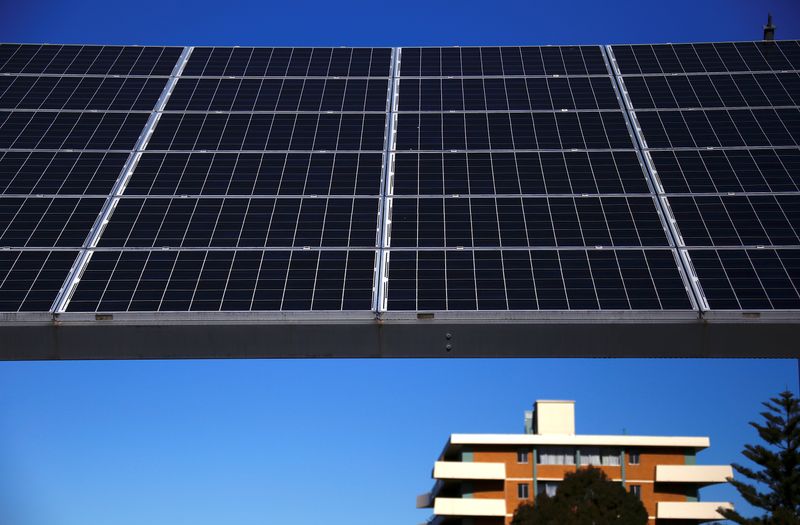By Scott Murdoch and Praveen Menon
SYDNEY (Reuters) - Canada's Brookfield and its partner EIG decided to go ahead with a $10.2 billion plan to buy Australia's Origin Energy Ltd despite escalating regulatory and government policy headwinds, senior management at the group said on Tuesday.
Origin, Australia's top energy retailer, on Monday agreed to the long-running takeover offer from the consortium, nearing the conclusion of one of the country's biggest private equity-backed buyouts.
The group trimmed its offer by 1% last month after a government move to cap gas prices hit valuations in the sector.
"It's concerning any time you have governments intervening in markets. The history of that has not been great," EIG Chief Executive Blair Thomas told Reuters in an interview.
"Those were headwinds we had to deal with," he added.
Once the deal is completed, EIG's MidOcean Energy will take control of Origin's integrated gas business. With a 25% stake in Australia Pacific LNG (APLNG) and the Australian LNG stakes that MidOcean acquired last year from Tokyo Gas, the company will have around 3.25 million tonnes of LNG.
The deal will need to be approved by Origin's shareholders as well as Australia's Foreign Investment Review Board (FIRB) and the Australian Competition and Consumer Commission (ACCC).
Origin's shares closed unchanged on Tuesday, holding below the implied offer price of A$8.91 a share as the deal is not expected to be finalised until early 2024 and there is currency risk, with payment in a mix of Australian and U.S. dollars.
"The lack of a reaction is likely the uncertainty of regulatory approvals, but I tend to think that it might take time but those will be forthcoming," said Morgans analyst Max Vickerson.
"The FX (foreign exchange) exposure will probably shake loose some smaller shareholders who aren't comfortable with that risk but at the downside of missing out on franking credits from the interim dividend and any potential final dividend," he said.
POLICY SWINGS
APLNG will be affected not just by a proposed new gas pricing regime, but also a government plan to give itself more leeway to make APLNG and two other LNG exporters divert gas to the domestic market.
Thomas said government policy swings world over are a by-product of the volatility associated with the tension between energy security and the transition to cleaner energy.
"I would argue that Europe had it much worse last year and the jury is out to what 2023 and 2024 look like," he said.
"You are going to have regulatory and government policy that swings," he added.
Origin, Australia's No. 2 power producer, has been looking to speed up its transition to cleaner energy, accelerating the planned shutdown of the country's biggest coal-fired power plant and selling its gas exploration assets.
Brookfield said it plans to invest a further A$20 billion ($13.4 billion) of capital to fully replace Origin's power generation and its power purchases with green power over a decade. It plans to build up to 14 gigawatts of new renewable generation and energy storage facilities in Australia.
"The broader policy of net zero by 2050 really has bipartisan support in Australia now and that is the basis on which we are making this investment," Brookfield Asia Pacific CEO Stewart Upson said in an interview, referring to a target for net-zero direct and indirect emissions by 2050.
Argo Investments Senior Investment Officer Andy Forster said his firm, the ninth-biggest investor in Origin, was positive about the deal, even though it might take time to gain regulatory approvals.
"Brookfield seems very committed to making the deal happen," he said.

($1 = 1.5031 Australian dollars)
($1 = 1.4950 Australian dollars)